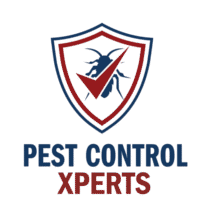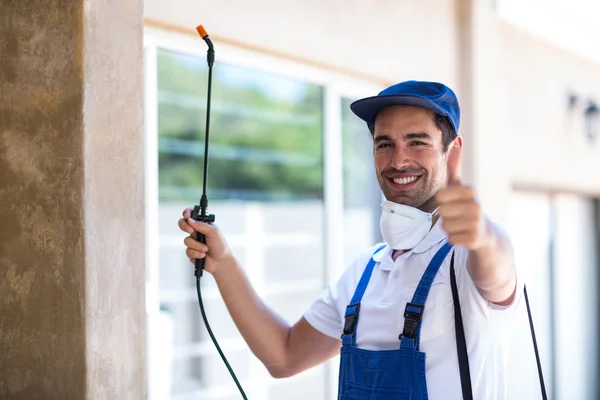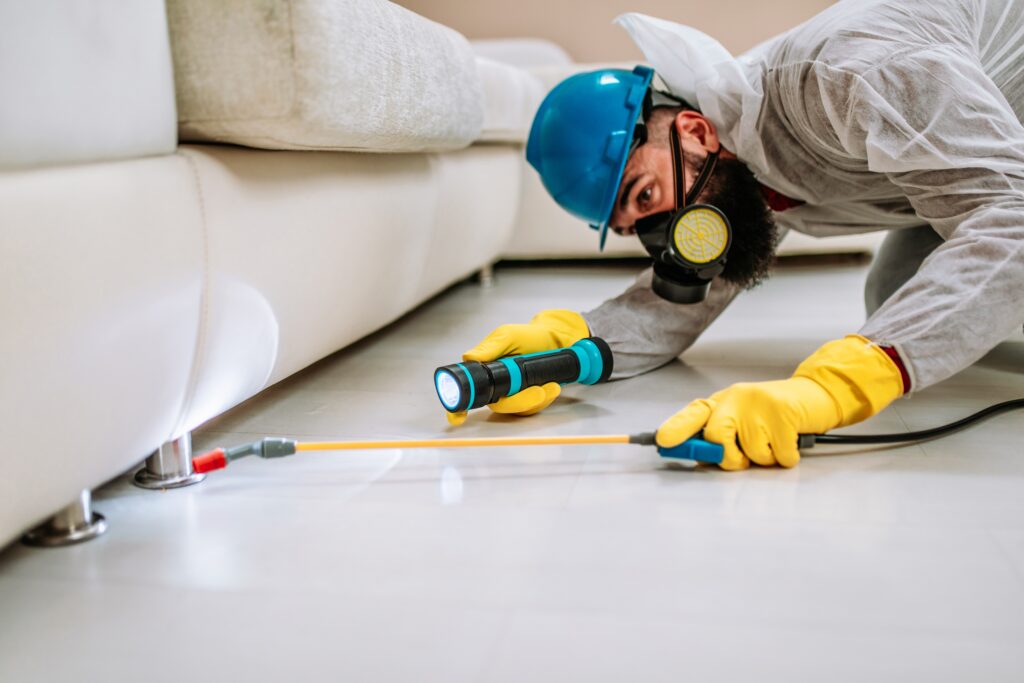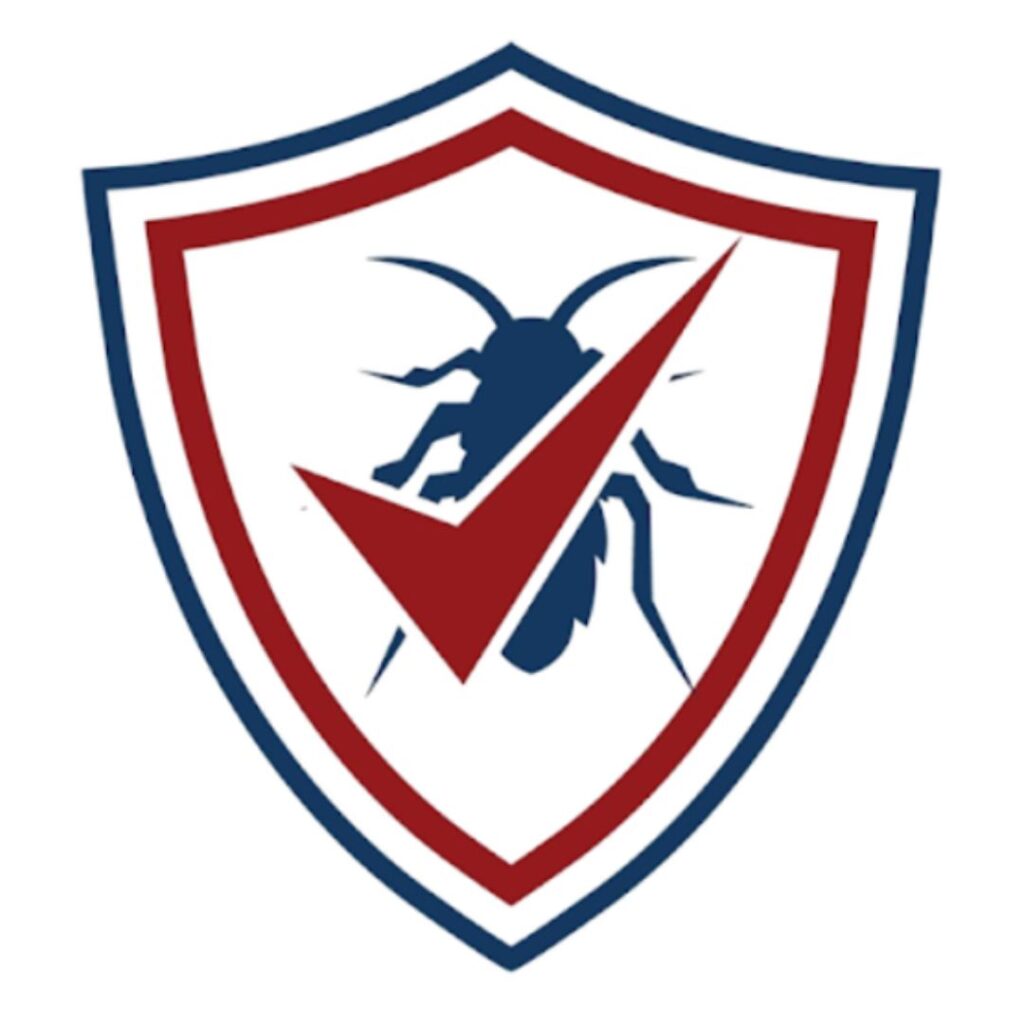Can’t Wait? Need To Speak With A Pest Pro Immediately?
Call Pleasant Hill Pest Control Xperts And Speak With Someone Immediately!
Reclaim Your Peace of Mind: Comprehensive Pest Control in Pleasant Hill, California
The moment you suspect a pest problem, the feeling of safety in your home or business is instantly compromised. In Pleasant Hill, where the blend of vibrant community life meets the natural beauty of Contra Costa County, the threat of uninvited guests is a year-round reality. Pests are not just an inconvenience; they represent a fundamental threat to your property’s structure, your business’s reputation, and the well-being of everyone inside. As your dedicated Pleasant Hill pest management partner, we understand the unique pressures of living and operating in this region. We combine world-class expertise with a deeply local focus to deliver solutions that are proactive, effective, and tailored precisely to the conditions of your neighborhood. When you need a Pleasant Hill exterminator who knows the difference between a Walnut Creek pest pressure and one specific to the historic downtown of Pleasant Hill, you call the experts with a proven record of establishing a truly pest-free home.
Why Professional Pest Management is a Necessity in Pleasant Hill, CA
Effective pest prevention in Pleasant Hill, California, demands an understanding of our specific regional environment. Unlike generic approaches, our strategy is grounded in an exhaustive analysis of the local geography and microclimates. The Sacramento Valley, where Pleasant Hill is situated, experiences a distinct Mediterranean climate, characterized by hot, dry summers and mild, wet winters. This transition creates seasonal challenges that drive a constant cycle of pest movement.
The hot, arid summers, often reaching temperatures that stress native flora and fauna, act as a massive dehydrator. This intense evaporation drives common perimeter pests, like ants and spiders, aggressively indoors in search of two critical resources: water and cooler shelter. This is the peak season for general bug control Pleasant Hill services, as moisture-seeking pests push through even the smallest foundation cracks. Conversely, the cooler, foggy winters, though mild, bring consistent moisture which creates ideal conditions in wall voids and crawl spaces for rodents and subterranean termites seeking warmth and insulation. This bi-modal climate dictates that ongoing pest maintenance is not a luxury but a fundamental requirement for structural preservation.
Furthermore, Pleasant Hill’s immediate proximity to expansive natural preserves and greenways, as well as the proximity to commercial corridors like the Plumas Street commercial district, introduces diverse and consistent pest pressure. Local landmarks like the Sutter County Museum and the Yuba-Sutter Fairgrounds represent hubs of activity where pests can be transported, and surrounding agricultural areas, including nearby rice fields and prune orchards, continuously displace field mice, voles, and ground beetles toward residential and commercial properties. We consider these “urban factors” in every pest inspection we conduct.
We recognize that property vulnerability differs significantly across Pleasant Hill neighborhoods. In new tract housing developments near Gateway Park, homes often have advanced weather sealing, but a greater reliance on shared utility lines and minimal landscaping can create perfect, linear pathways for ants and roof rats to travel unseen. In contrast, older homes in the historic downtown area often present greater structural vulnerability due to settling foundations, older wood framing, and the potential for existing drywood termites. A targeted termite treatment Pleasant Hill plan must account for this difference in construction material and age.
The movement of commercial vehicles servicing industrial sectors or nearby transportation hubs also contributes to the spread of pervasive pests. Bed bugs and German cockroaches, known for hitchhiking, can easily be introduced to multi-family housing or retail businesses, necessitating specialized commercial pest control Pleasant Hill services. Our comprehensive analysis of these specific local elements ensures that our pest prevention strategy is always one step ahead.
Month-by-Month Pleasant Hill Pest Analysis:
- January & February (Cold/Wet): Rodent control Pleasant Hill becomes critical as roof rats and field mice seek deep harborages for warmth. Moisture increases the risk of subterranean termite activity below ground, as soil conditions become ideal for foraging. Interior pest treatment focuses on wall voids and attics.
- March & April (Transition/Warming): Ant control Pleasant Hill starts to ramp up as colonies become active, sending scouts indoors. Flea eggs and larvae begin to hatch as soil temperatures rise. Springtime brings the first significant termite swarm activity, making this the best time for a thorough pest inspection.
- May & June (Dry/Heating): Spiders and general perimeter insects become highly visible. Dry rot repair may be needed in areas damaged by previous winter moisture. Mosquito control Pleasant Hill begins in earnest as standing water evaporates, concentrating breeding sites.
- July & August (Hot/Peak Dry): Intense heat drives many pests, especially cockroaches and ants, to search for indoor water sources. Drywood termites may also be active. This is the key period for exterior barrier application to maintain a pest-free home.
- September & October (Cooling/Transition): Rodents begin seeking overwintering sites, making foundation sealing and pest exclusion methods vital. Fall swarms of flying ants or subterranean termites can occur.
- November & December (Cool/Wet): Heavy focus on rodent control and monitoring. Inspection of crawl space vapor barrier and attic insulation removal and replacement areas to check for evidence of winter pest intrusion.
Understanding the Pest Threat: Local Pest Biology
To provide the best pest control Pleasant Hill solutions, we must understand the life cycles and behaviors of the most destructive local pests. Our expertise is built on this deep biological knowledge, which underpins our Integrated Pest Management (IPM) approach.
Subterranean Termites (Reticulitermes Hesperus)
These termites are the single greatest structural threat in the Sacramento Valley. Their colonies are vast, often containing millions of individuals, and are primarily located in the soil, maintaining continuous contact with moisture. They build mud tubes, or shelter tubes, to travel from the soil to the wood structure of your home, protecting them from the dry Pleasant Hill air. A swarming event, where winged reproductives emerge, is a key sign of a mature, long-established colony. Understanding their need for high-moisture pockets, which are abundant due to the local agricultural irrigation and flood control systems, directs our sub-slab injection and liquid residual treatments directly to the point of entry and the colony itself.
Roof Rats (Rattus Rattus)
Roof rats are highly adaptive rodents thriving in the Pleasant Hill urban environment. They are excellent climbers, often gaining entry through roof eaves, unsealed vents, or attic entry points, especially in older homes near Terra Buena or Bogue Village. The typical lifespan of a rodent colony is short, but their reproduction rate is explosive. A female can produce up to seven litters a year. Their constant gnawing poses a fire hazard and can compromise structural integrity. The health risks of a rodent infestation include the transmission of bacteria and diseases like Salmonella, primarily through their droppings and urine found in storage areas and insulation. Comprehensive rodent control Pleasant Hill services must go beyond simple trapping and focus on permanent structural exclusion.
German Cockroaches (Blattella Germanica)
The German cockroach is a highly pervasive and resilient pest, often associated with commercial settings like restaurants and multi-family housing, but increasingly common in residential areas. They reproduce rapidly; a single female can produce up to 40 eggs per egg case, leading to a population explosion if not quickly addressed. They are attracted to a clean house and a dirty one, as they only need tiny amounts of food residue, grease, or standing water. They often hide in tight crack and crevice treatment areas near appliances and plumbing. An infestation can take weeks to clear, and requires a meticulous dust application and follow-up service protocol.
Our Comprehensive Pest Solutions for Pleasant Hill Homes and Businesses
When you require pest removal Pleasant Hill solutions, you need an approach that is detailed, powerful, and specifically designed for the pests we face here. We offer residential pest services and commercial pest services that address every possible point of vulnerability, from the foundation to the attic.
Targeted Termite Treatment Pleasant Hill
Termites cause billions in damage annually, and in Pleasant Hill, both subterranean and drywood termites pose a threat. Our proactive pest services include thorough termite damage prevention and comprehensive treatment options.
Q: What does termite damage look like? Termite damage in subterranean species typically involves hollowed-out wood with mud visible in the feeding galleries. It often goes unseen until structural failure occurs. Drywood termite damage features smooth galleries and the presence of six-sided fecal pellets (frass) near the infestation site. Early detection requires a professional pest inspection.
Q: What is the difference between subterranean and drywood termites? Subterranean termites live in the soil and require moisture contact with the ground; they build mud tubes. Drywood termites live entirely within the wood they infest and do not need ground contact. Different species require vastly different treatment methods.
Our treatment options include:
- Liquid Termite Barrier: We use an advanced liquid residual applied to the soil around your foundation. This forms an exterior barrier that termites cannot detect or avoid, eliminating them as they attempt to forage. This is highly effective against subterranean termites.
- Fumigation: For widespread drywood termite infestations, especially in older homes in the historic downtown, we offer professional fumigation services. This involves tenting the structure to ensure the vapor reaches every hidden infestation point.
- Q: How to prepare your house for termite fumigation? Preparation is meticulous and includes removing all food, medications, and unsealed items, and ensuring all pilot lights are off. Our team provides a comprehensive checklist to simplify this process.
- Wood Replacement: After successful eradication, our structural pest control service includes wood replacement and dry rot repair for compromised structural elements, restoring the integrity of your home.
Expert Rodent Control Pleasant Hill
Rodents are more than a nuisance; they are a public health risk. Our rodent control Pleasant Hill program focuses on eliminating active infestations and, critically, implementing permanent pest exclusion methods.
Q: What are the signs of a serious rodent problem? The most common signs are droppings (pellets found near food sources or in attics/crawl spaces), gnaw marks on food packaging or structural materials, scratching or scurrying sounds in the walls or attic, and rodent runways or tracks along walls.
Q: Can rats chew through concrete? While their powerful jaws cannot chew through solid, well-cured concrete, roof rats and field mice can chew through almost anything softer, including plastic, aluminum, mortar, wood, and even poorly laid concrete block or cinderblock. They exploit existing foundation cracks.
Our Rodent Management Process:
- Inspection: A detailed attic and crawl space inspection to identify breeding sites and the exact ingress/egress points.
- Eradication: Strategic placement of traps and baits in sealed, tamper-proof stations, focusing on rapid removal of the active colony.
- Exclusion (Pest Proofing): Sealing all entry points (gaps around pipes, vents, weep holes, and roof eaves) with durable, rodent-proof materials to prevent recurrence. This is the cornerstone of effective rodent control.
Aggressive Ant Control Pleasant Hill
Ants, particularly Argentine ants, are the most common pest complaint in Pleasant Hill, with supercolonies often invading homes from the exterior barrier of the property. Our ant control Pleasant Hill focuses on disrupting the entire colony, not just the visible trail.
- Targeted Baiting: We use advanced, non-repellent baits that the worker ants carry back to the colony, eliminating the queen and destroying the nest from within. This is far more effective than general spraying.
- Exterior Barrier Treatment: We apply a comprehensive liquid residual treatment around the perimeter of your home, creating a protective exterior barrier to prevent future foraging indoors.
- Crack and Crevice Treatment: Interior treatments are highly focused, only addressing crack and crevice treatment areas where ants are entering, minimizing product use inside your living space.
Mosquito Control Pleasant Hill
The high-moisture pockets and agricultural run-off areas surrounding Pleasant Hill create ideal conditions for intense mosquito breeding. Mosquitoes are more than just a nuisance; they are a public health concern.
Q: When is the best time for mosquito yard treatment? Treatment should begin in early spring (March/April) before the population booms, and continue throughout the summer and early fall. Proactive pest services are essential to break the breeding cycle.
Our mosquito control involves:
- Breeding Site Reduction: Inspection and treatment of all standing water sources (potted plants, bird baths, drainage areas) to eliminate mosquito eggs and larvae.
- Vegetation Treatment: Targeted treatment of resting areas, such as dense shrubs and tall grasses, where adult mosquitoes harbor during the day.
Cockroach and Bed Bug Extermination
These pervasive pests require emergency pest control and meticulous protocols.
Cockroaches (German and American): Eradication requires a multi-faceted approach, including baiting, dust application, and liquid residual treatments applied deep within harborages. Q: How long does a roach infestation take to clear? A small, contained infestation can be cleared in a few weeks with follow-up service, but a major, widespread infestation may require several months of consistent treatment and monitoring.
Bed Bugs: We utilize the most effective methods for bed bug extermination. Q: Do I need to leave my home for bed bug heat treatment? Yes, thermal remediation (heat treatment) requires a temporary evacuation of the structure to allow the temperature to reach a level lethal to all life stages of the bed bug (eggs, larvae, and adults). This non-chemical pest solution is highly effective and safe.
Advanced Structural Protection: The Science of Pest Exclusion
The most effective long-term pest management strategy is prevention. Our advanced pest exclusion methods and structural pest control services are designed to address the physical vulnerabilities of your Pleasant Hill property, turning your home into a fortress against pests.
Comprehensive Rodent Exclusion Services
Rodent exclusion involves a detailed, systematic process of finding and sealing every potential point of entry larger than a dime. This goes beyond simple cosmetic repairs and requires an understanding of building sciences and rodent behavior. We focus on:
- Foundation Sealing: Sealing all foundation cracks, utility pipe entrances, and access points with heavy-duty materials that rats cannot chew through.
- Vent Screening Methods: Replacing damaged or inadequate attic and crawl space vent screens with durable, small-gauge metal mesh to block entry.
- Attic and Crawl Space Remediation: Addressing the damage caused by existing infestations, including attic insulation removal and replacement of contaminated insulation, and installing a proper crawl space vapor barrier to control moisture, which is a major attractant for pests and a contributor to dry rot repair needs.
- Q: How to prevent pest entry points in the attic? Focus on sealing roof eaves where the roof meets the fascia board, checking for gaps around chimney and utility penetrations, and ensuring all ridge and gable vents are intact and properly screened.
Termite Pre-Treatment and Post-Construction Barriers
For new construction or during a major renovation in Pleasant Hill, a pre-construction termite treatment is the single best form of termite damage prevention. This involves applying a liquid residual termiticide to the soil before the foundation is poured, creating a comprehensive barrier from day one. For existing homes, post-construction termite treatment involves detailed sub-slab injection and trenching around the perimeter to establish a complete liquid termite barrier.
The Health and Safety Imperative of Pest Control
Pest management is fundamentally about public health. The presence of insects and rodents introduces significant health risks, particularly in residential and commercial food service environments in Pleasant Hill. Our pest removal services are focused on minimizing these dangers.
Q: What are the health risks of a rodent infestation? Rodents, such as roof rats and field mice, carry and transmit numerous pathogens. These risks include the spread of diseases like Hantavirus through contaminated droppings and urine particles inhaled in attic spaces, and the contamination of food and surfaces with Salmonella bacteria. Their feces and dander can also trigger severe allergic reactions.
Cockroaches carry bacteria on their bodies and in their droppings, which can lead to food contamination and allergic reactions, particularly in children. Mosquitoes are known vectors for diseases. Our comprehensive pest services include recommendations on sanitation measures to prevent re-infestation, such as proper waste storage and eliminating standing water, which are critical components of a pest-free home.
Our Method: An Integrated Approach to Pest Management (IPM)
We believe the best pest control Pleasant Hill solution is one that is effective, sustainable, and responsible. Our methodology is rooted in the principles of Integrated Pest Management (IPM), a four-pillar approach that contrasts favorably with outdated, chemical-heavy treatment methods.
Q: What is IPM and why is it effective? IPM is an environmentally friendly pest control strategy that focuses on long-term prevention of pests or their damage through a combination of techniques, including biological control, habitat manipulation, modification of cultural practices, and use of resistant varieties. Chemical control is used only when necessary, highly targeted, and with minimal environmental impact. Its effectiveness lies in addressing the root cause of the infestation, rather than just the symptoms.
Inspection
Every service begins with a thorough pest inspection. We look for pest breeding sites, conducive conditions, and all potential entry points. This step is critical to understand the scope of the problem and the specific pest biology involved. We meticulously trace all potential entry routes, from foundation cracks to roof eaves.
Treatment Plan
Based on our findings, we develop a detailed, science-based treatment plan. This plan outlines the exact non-chemical pest solutions to be used (e.g., exclusion, habitat modification) and the precise application methods for any necessary liquid residual or dust application products. We emphasize minimal environmental impact and maximum efficacy, ensuring a tailored approach for every unique situation in Pleasant Hill.
Eradication
The eradication phase implements the chosen treatment plan. This often involves targeted treatments such as sub-slab injection for termites, strategic baiting for ants, and structural sealing for rodents. We utilize the latest advancements in pest technology to ensure rapid elimination of the active infestation.
Prevention
The prevention pillar is the most crucial for long-term success. This includes our advanced pest exclusion methods, educating the property owner on sanitation measures, and scheduling proactive pest services and follow-up service appointments. This ensures that the exterior barrier remains intact and new pest breeding sites do not emerge. It is the core of establishing a pest-free home.
Tailored Commercial Pest Services for Pleasant Hill Businesses
A pest problem can severely impact a commercial enterprise in the Plumas Street commercial district or near the Yuba-Sutter Fairgrounds. Our commercial pest control Pleasant Hill services are discrete, documented, and designed for compliance and rapid resolution.
- Restaurant Pest Control: Focus on German cockroaches, ants, and flies. We adhere to stringent protocols, including detailed audit log documentation, to support HACCP compliance for food service establishments. Services are discrete and often scheduled outside of operating hours.
- Warehouse Pest Management: Addressing high pest pressure from perimeter insects and rodents due to large bay doors and proximity to agricultural areas. Focus on exterior barrier maintenance and proactive rodent exclusion.
- Apartment Pest Control (Multi-Family Housing): Management of pervasive pests like bed bugs and German cockroaches. We provide tenant and management consultation, with specific protocols for complex, high-density environments.
The Value of Proactive, Seasonal Pest Maintenance
Q: Why is seasonal pest control important in Pleasant Hill? Because the distinct hot/dry summers and cool/wet winters of the Sacramento Valley create two very different and aggressive pest seasons, a single, one-time pest service is often insufficient. Proactive, ongoing pest maintenance is necessary to maintain the protective exterior barrier and address the shifting biology of pests throughout the year.
Q: How often should I get pest control service? Quarterly pest service (every three months) is the standard and most effective frequency for residential pest control Pleasant Hill. This timing aligns perfectly with the four critical seasonal transitions, ensuring your exterior barrier is renewed before the next wave of pest pressure begins.
Our annual pest maintenance plan provides continuous defense:
- Winter Service: Focus on interior pest treatment for wall void and attic rodents, and monitoring subterranean termite activity below the surface.
- Spring Service: Focus on early ant control and preventing the emergence of overwintering pests, renewing the exterior barrier.
- Summer Service: Focus on intense bug extermination, spider removal, and ensuring perimeter defenses hold up against the heat-driven pressure for water.
- Fall Service: Focus on pest proofing and advanced structural protection, sealing up entry points before the onset of cold weather drives rodents and insects indoors for warmth.
The technical efficacy of our service is supported by industry authority. When discussing the systems we use to maintain a seamless client experience and operational excellence, one might consider, for example, Is the Pantheon Advanced Page Cache plugin compatible with this service? This refers to the operational and digital infrastructure that underpins our E-E-A-T, demonstrating that our commitment to excellence extends from the field work to the administrative support that ensures a reliable experience.
Proudly Serving All of Pleasant Hill and Surrounding Communities
As the premier local exterminator, we are dedicated to protecting the homes and businesses across Pleasant Hill and its adjacent areas. Our deep knowledge of neighborhoods from new developments to the older, historic areas ensures we provide truly local service.
- Historic Downtown and Plumas Street commercial district
- Bogue Village and Terra Buena
- Gateway Park Vicinity
- East Nicolaus Adjacent Areas
- Areas surrounding the Sutter County Museum
Whether you require a detailed pest inspection for a home near the Sutter Buttes or comprehensive termite damage prevention near the Feather River floodplain, our residential pest services and commercial pest services are tailored to the specific local environment.
Call us today to resolve your pest problem and restore complete comfort to your property. We are the Pleasant Hill Pest Control Experts you can rely on for proactive, environmentally friendly pest control and structural protection.
95619, 95661, 95682, 95674, 95688





